Educational Congress "Moving Classroom"
Open to the General Public
Discover how movement is a fundamental tool in the development and learning of our students. Learn practical, dynamic, and creative strategies to achieve a "Classroom in Motion".
Registration and Payment
Register and pay at the following link:
Agenda
| Friday, April 19th | ||||
|---|---|---|---|---|
| 1:30-2:30 PM | 1 hour | Registration | ||
| 2:30-3:00 PM | 30 min | Welcome Samuel Cartaya (movement) Andrea Encalada Vice-Rector USFQ (to be confirmed) | ||
| 3:00 - 4:30 PM | 1h30 | How Your Brain Learns: Learning and Movement Estefanía Sevilla | ||
| 4:30 - 5:00 PM | 30 min | Coffee break | ||
| 5:00 -6:30 PM | 1h30 | Self-Regulation Through Movement Daniela Ziritt | Autism, Body and Music: From Regulation to Learning in the Classroom Samuel Cartaya | |
| Saturday, April 20th | ||||
| 8:30-9:00 AM | 30 min | Registration | ||
| 9:00-10:30 AM | 1h30 | Connecting Play with Emotions and Learning Paola Ponceano | ||
| 10:30-11:00 AM | 30 min | Coffee break | ||
| 11:00-12:30 PM | 1h30 | Live Dynamics: Activate, Connect, and Learn Rafael Muñoz | Creativity in Movement Juan Pablo Gallegos | |
| 12:30-1:45 PM | 1h15 | Lunch Break | ||
| 2:00-3:30 PM | 1h30 | Design Thinking and Movement: Promoting Creativity in the Classroom Julián Maya | Live Dynamics: Activate, Connect, and Learn Rafael Muñoz | |
| 3:30-4:00 PM | 30 min | Coffee break | ||
| 4:00-5:30 PM | 1h30 | Education in Movement Sergio Carneros | ||
| Training Hours | 14 h | |||
Keynote Speeches
How Your Brain Learns: Learning and Movement
In this space, we will review how the brain learns and how to leverage discoveries in neuroscience in education to plan our classes. Knowledge construction is multisensory, yet one of the senses we often overlook is proprioception; play, movement, and awareness of one's own body is the proposal for a more comprehensive and meaningful learning experience.
Connecting Play with Emotions and Learning
In this space, we will explore the fascinating world of gamification applied to education. We will discover how strategic use of play in the classroom can generate deep emotions and facilitate meaningful learning. From the potential of games to capture attention and motivate students to their ability to foster collaboration and problem-solving, we will analyze how gamification can transform the educational experience. We will explore concrete examples of how to integrate game elements into various subjects and educational levels, as well as practical strategies for effectively implementing gamification in the classroom. Join us on this exciting educational adventure, where we will learn how to turn the classroom into a dynamic, stimulating space full of deep learning through the power of play.
Education in Motion
Movement has been forgotten by traditional schooling. But now education is changing, transforming, in motion. In this presentation, movement will be addressed from a holistic perspective, discussing the power and importance of the body-mind, moving away from the more memoristic, linguistic, mathematical, and rational intelligence that has been imposed in educational systems. We will talk about active, conscious, bodily, holistic education, to understand and perceive our students from a new perspective.
Simultaneous Workshops:
Autism, Body, and Music: From Regulation to Learning in the Classroom
The body is a stage of constant battles in autism. Challenges in sensory, emotional, and cognitive processing occur in the autistic body and hinder participation in the classroom.
Understanding the challenges and processes of the autistic child's body and generating strategies for regulation through music is a good start to promote the ideal participation of the autistic child in class.
Design Thinking and Movement: Promoting Creativity in the Classroom.
Design Thinking is a set of mindsets and tools within a human, collaborative, and interactive process, focused on driving the solution of complex problems through empathy, challenging assumptions, and prototyping. This method effectively promotes creativity and experience-based learning. In this workshop, in addition to having fun, we will explore different Design Thinking tools for a classroom in motion.
Creativity in Motion
In this dynamic session designed to immerse attendees in an interactive and stimulating environment, where creativity becomes the main engine of learning.
This workshop proposes an innovative approach: a series of stands strategically distributed, each representing a unique creative challenge.
Participants will have the opportunity to experience a variety of creative exercises, each with a specific execution time. Upon completing each challenge, attendees will rotate through the different stands, ensuring that all have explored all facets of creativity.
The fundamental goal of this presentation is for participants to understand the importance of cultivating creativity as a fundamental skill in the educational process.
Live Dynamics: Activate, Connect, and Learn
This workshop is an invitation to move, explore, and connect. Leave the chairs behind and dive into outdoor activities that will make you feel the essence of learning in motion. Prepare for a unique experience where movement will transform your way of teaching and learning.
Self-Regulation Through Movement
We can understand self-regulation as a balancing exercise where we restore calm after an active state, and vice versa. A child who learns to self-regulate gains autonomy and, with it, the confidence to relate fearlessly, successfully integrating into the social order. The first element of learning self-control is the body. Through movement, children learn to exercise their will and direct their behavior purposefully.
In this workshop, we will understand the importance of movement in the development of autonomy in the classroom, and how the role of the caregiver, as an external control agent, must generate tranquility, trusting in the child's ability to self-regulate.
Speakers
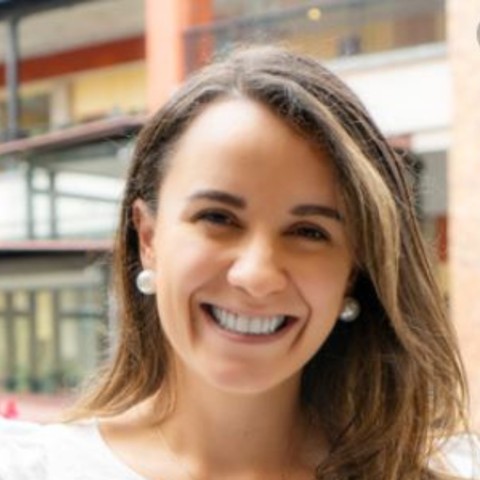
Estefanía Sevilla
Clinical Psychologist graduated from USFQ, Master's in Neuropsychology from the University of Salamanca, Spain. Trained by the Beck Institute in Cognitive Behavioral Therapy for mood disorders and anxiety disorders. Worked for five years as the coordinator of the Office for Special Educational Needs at USFQ; currently a part-time faculty member at the Universidad San Francisco de Quito.
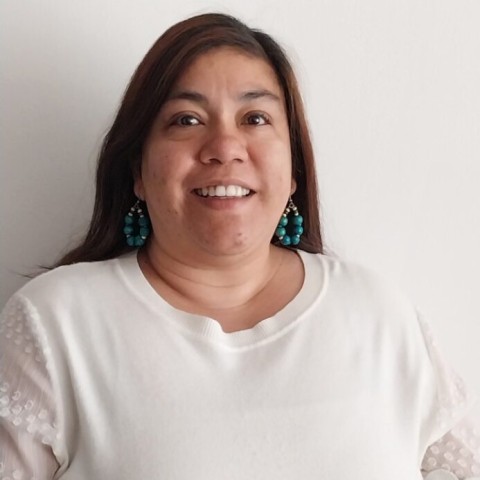
Paola Ponciano
Project/Portfolio Manager specialized in education and social development, working in international and educational organizations for over 10 years. Alumni of the Teach for All Global Education Network. Consultant in the management and planning of projects related to systemic change and community development through education and community inclusion, motivating synergy among actors from the public, private, and social sectors. Currently, Country Manager at Education for Sharing and advocacy and policy advisor for Sesame Workshop on issues of early childhood, education, and migration. Passionate about using technology to enhance the learning experience and democratize access to training that provides equal opportunities.
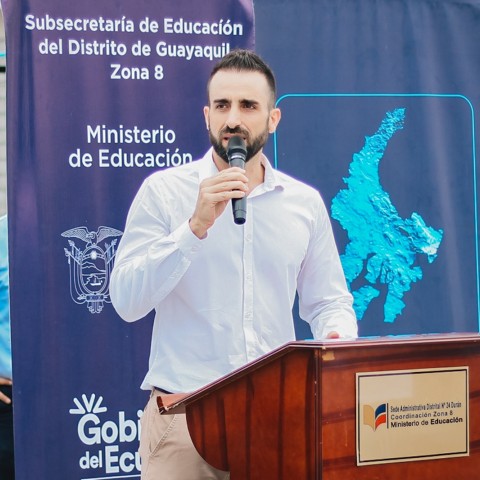
Sergio Carneros Revuelta
Father, educator, activist, researcher, and PhD in education specialized in transformation processes, disruptive models, alternative pedagogies, and social and environmental justice. He has worked in the educational, social, and environmental fields in Spain, El Salvador, Senegal, Bolivia, the Philippines, Panama, and currently directs the United for Education Projects in Ecuador. He has spent many years in the field of movement, with a Diploma in Teaching with a specialization in Physical Education, a Master's in Motor Neurocontrol, and an Expert Certificate in Early Attention. For years, he worked in this field in specialized centers for children with special educational needs and as a university educator.
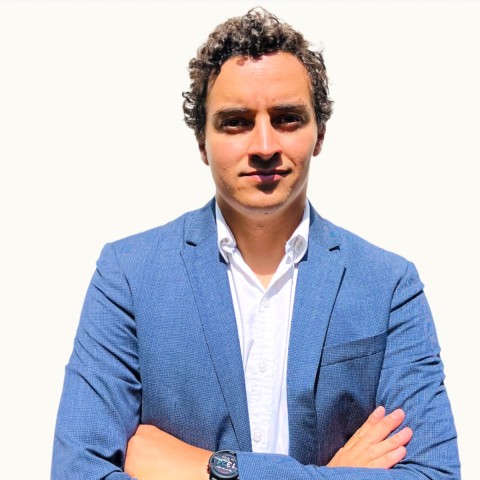
Julián Maya
Julián Maya is a purpose-driven professor at the Business School of USFQ, specializing in entrepreneurship, innovation, and data analysis. His professional experience lies at the intersection of technology, design, and business. He is the academic coordinator of the Data Analysis Minor. He holds a Master's degree from Pompeu Fabra University in Cognitive Systems and a Business Administration degree from USFQ.
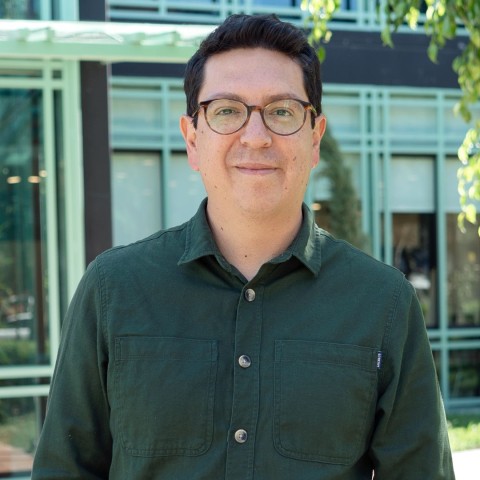
Juan Pablo Gallegos
Juan Pablo is the coordinator of the Advertising program at USFQ. He is passionate about creativity and creative processes in learning. With a solid background in advertising and education, he has developed an innovative approach to engaging students. His passion for creativity is reflected in his constant search for new and exciting ways to connect with students, combining his experience in both fields to inspire original thinking and excellence in learning.
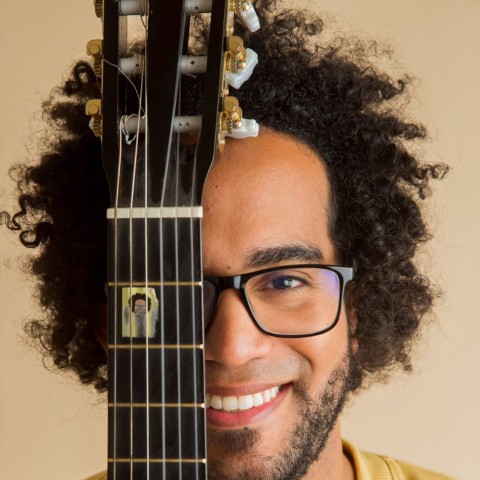
Samuel Cartaya
Samuel, with a Bachelor's degree in Music Education, a Master's in Music Therapy, and a Master's in Early Attention and Child Development, has worked with children since 2009, currently focusing on supporting autistic children through music therapy and providing guidance to families.
He is also dedicated to academic life and research, participating in various international music therapy conferences and seminars.
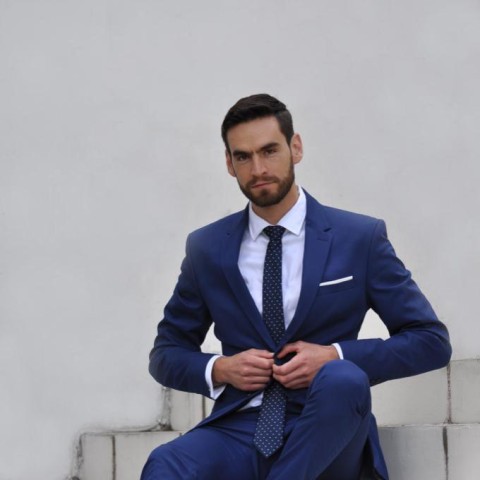
Rafael Muñoz
Clinical Psychologist graduated from the Universidad San Francisco de Quito. After earning a master's degree in Positive Organizational Psychology from Erasmus University Rotterdam in the Netherlands, he founded Human Reinvention, a human talent consultancy specialized in Engagement. With Human Reinvention, since 2020, he has collaborated with large and prominent companies in the country. In addition to contributing to the future of organizational psychology by being a professor of Organizational Development and Performance Management at USFQ.
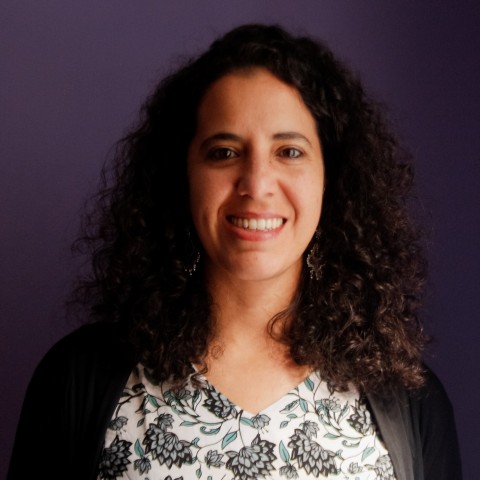
Daniela Ziritt
Professor at Universidad San Francisco de Quito and director of the therapeutic center, Oasis Wellness and Health. Clinical Psychologist, with a master's degree in Neuroscience from the University of Sydney, Australia.
She has 16 years of experience in human behavior and emotion management, with extensive knowledge in individual and group therapeutic work, and in crisis intervention for people in risk situations. She also has experience in creating content for the promotion and dissemination of human rights. She works with children, adolescents, and parents, developing emotional intelligence and establishing harmonious family relationships.

